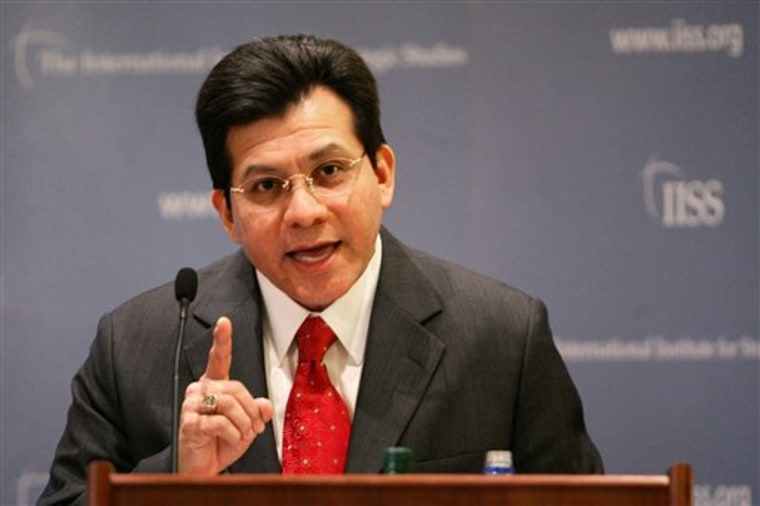U.S. Attorney General Alberto Gonzales defended his country's treatment of terror suspects against criticism from Europe and elsewhere, telling a London audience Tuesday that the United States abhors torture and respects the rights of detainees.
Gonzales also said the United States did not transport terrorism suspects to nations where it was likely they could be tortured.
Human rights groups and other European critics have alleged that U.S. planes may be using European airports and air space to send suspects to nations that may torture them. They have also criticized the U.S. prison camp in Guantanamo, and a U.N. report last month called for the facility to be closed "without further delay" because it is effectively a torture camp where prisoners have no access to justice.
The U.S. attorney general — speaking at the International Institute for Strategic Studies think-tank in London — vehemently denied such charges, but acknowledged that people might interpret the term "torture" in different ways. The U.S. abides by its own definition, which he said was the intentional infliction of severe mental or physical suffering.
"The U.S. abhors torture and categorically rejects its use," Gonzales said, adding that where appropriate the U.S. sought assurances from foreign governments before transporting detainees there, and did not transport anyone "to a country if we believe it more likely than not that the individual would be tortured."
Defender of human rights
Gonzales also said the United States did not use airports in Europe or anywhere else to move detainees for the purpose of torture.
"The United States has always been and remains a great defender of human rights and the rule of law," Gonzales said. "I regret that there has been concern or confusion about our commitment to the rule of law."
On the subject of the Guantanamo Bay prison camp, Gonzales said detainees were treated properly and afforded with extensive legal protections.
The prison — opened January 2001 at the U.S. Naval base in southeast Cuba — now holds about 490 men suspected of having links to al-Qaida and the Taliban. Though many inmates have spent several years at the camp, only a handful have been charged.
Gonzales defended their treatment and said the United States had to use all available tools to fight terror, reiterating U.S. claims that the detainees were "highly dangerous people" including terrorist trainers, bomb makers and potential suicide bombers.
"We are aware of no other nation in history that has afforded procedural protections like these to enemy combatants," he said.
Gonzales said the United States was continually reassessing the need for the camp to remain open, and could consider closing it if circumstances changed.
Disagreements over tactics
He acknowledged disagreements between the United States and Europe on tactics in the fight against terror, but said it was critical that the allies continued to work together. British Prime Minister Tony Blair last week said Guantanamo was an "anomaly" that he hoped would be closed.
Gonzales said U.S. law also forbids cruel, inhuman and degrading treatment of detainees in the United States or abroad by military or civilian personnel.
He declined to comment on alleged interrogation techniques at Guantanamo, such as water boarding, during which the victim believes he is about to drown, or the use of dogs to intimidate prisoners.
"If we went around this room, people would have different definitions of what constitutes torture, depending on the circumstances," he said.
